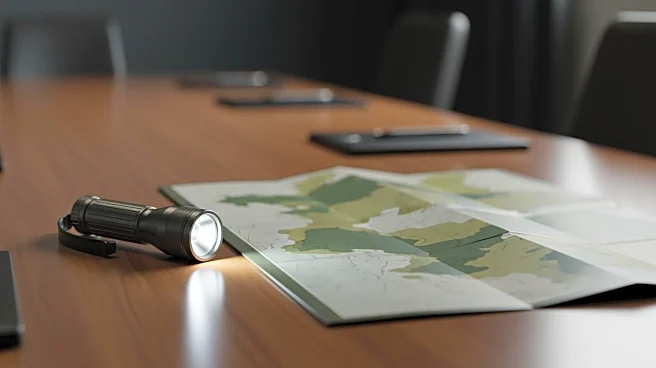What's Happening?
Flavourtech, a leader in thin film and spinning cone technologies, has adapted to the ongoing international travel restrictions due to Covid-19 by implementing advanced remote commissioning technologies. The company, based in Australia, has optimized its remote work processes over the past 18 months, allowing its installation and commissioning teams to operate effectively without traveling. Flavourtech provides detailed manuals, instructional videos, and mobile chat platforms to facilitate communication with customers. The use of audio-visual links and real-time data enables the commissioning of equipment as if Flavourtech were on-site. Operator training is conducted via video meeting platforms, ensuring customers can proceed with production plans despite the pandemic. Augmented Reality (AR) headsets have been instrumental in reducing operational time, identifying faults in real-time, and improving operator competency and confidence.
Why It's Important?
The adaptation of remote commissioning technologies by Flavourtech highlights the resilience and innovation within the global food industry during the Covid-19 pandemic. By leveraging technology, Flavourtech has maintained its service quality and customer satisfaction, demonstrating a successful model for other companies facing similar travel restrictions. This approach not only ensures business continuity but also sets a precedent for remote operations in the industry, potentially reducing costs and increasing efficiency. The use of AR technology further enhances the training and operational processes, providing real-time support and improving overall productivity.
What's Next?
Flavourtech's successful implementation of remote technologies may encourage other companies in the food industry to adopt similar strategies, especially as travel restrictions continue to impact global operations. The company may continue to refine its remote processes and explore additional technological advancements to further enhance its service delivery. As the pandemic persists, the reliance on remote technologies could become a permanent fixture in the industry, influencing future business models and operational strategies.
Beyond the Headlines
The shift to remote commissioning technologies raises questions about the long-term impact on traditional business practices and the role of technology in transforming industry standards. Ethical considerations regarding data privacy and security in remote operations may also emerge as companies increasingly rely on digital platforms for communication and training.









